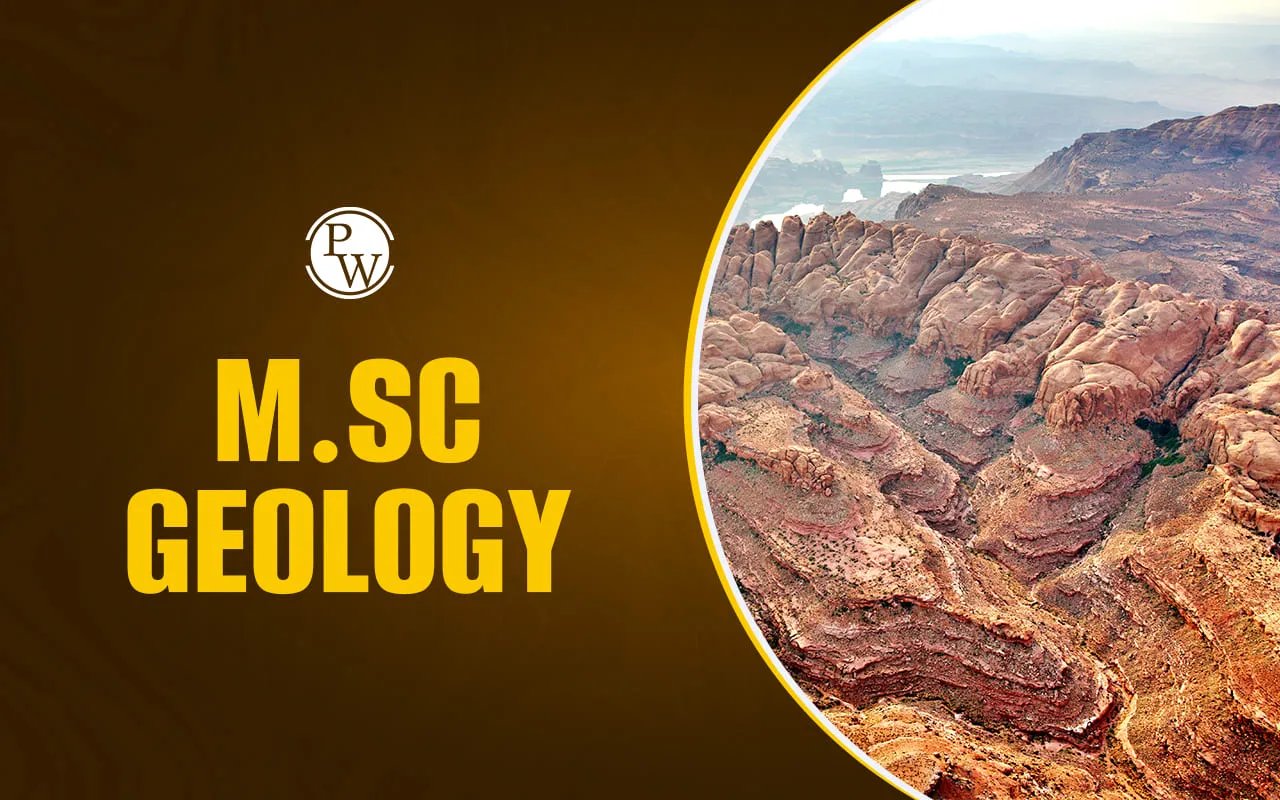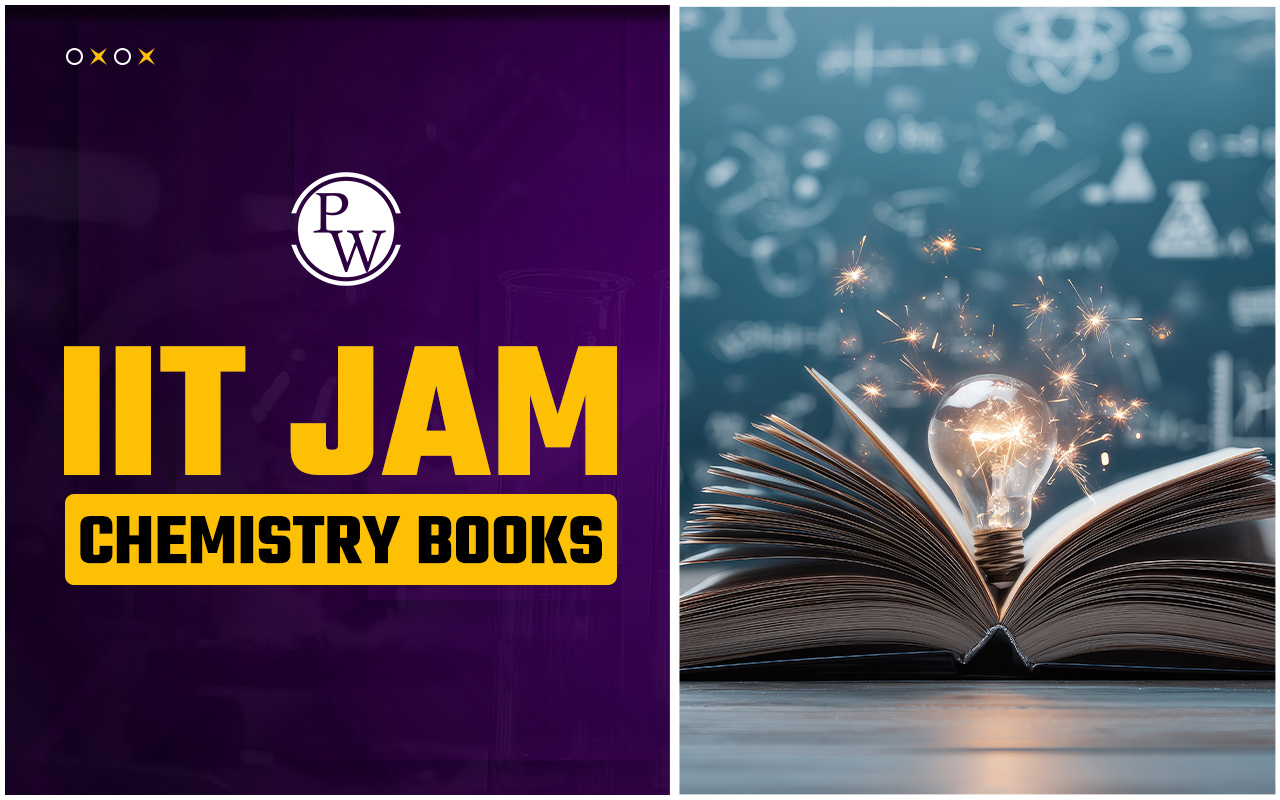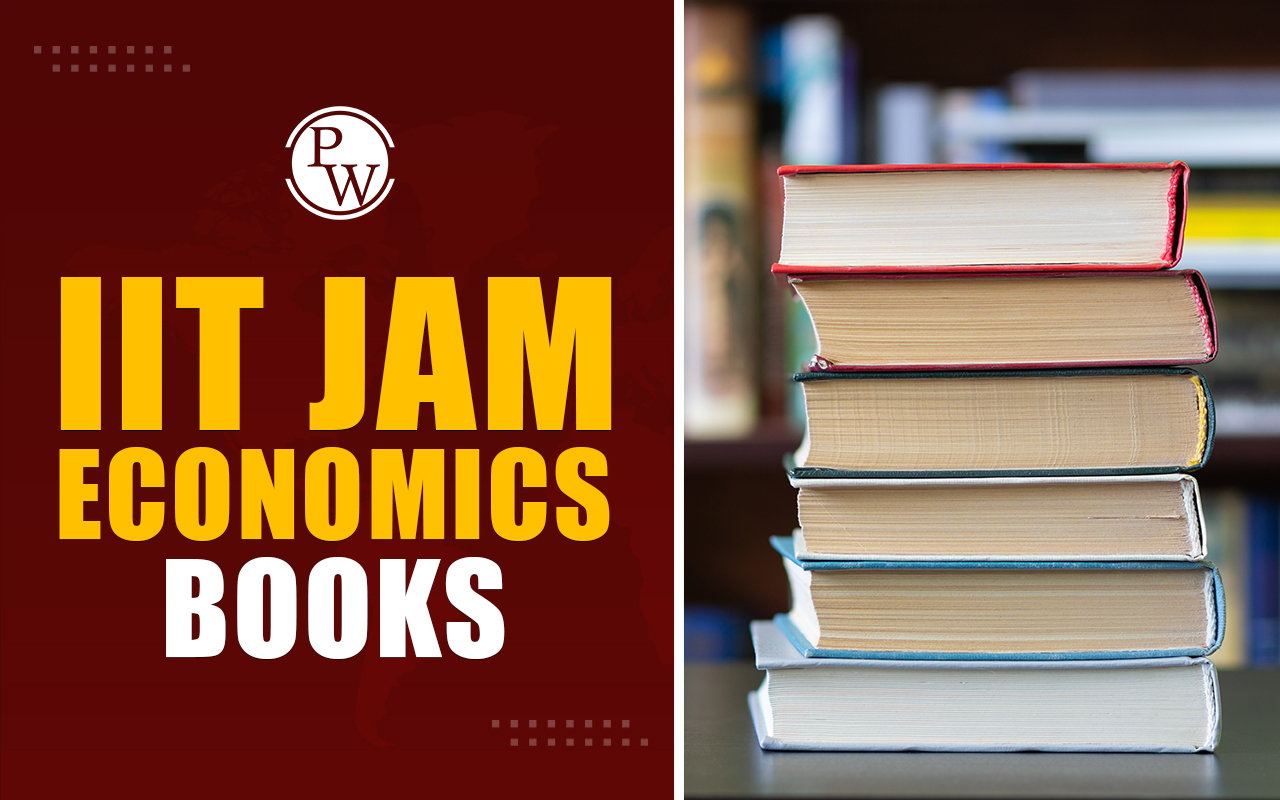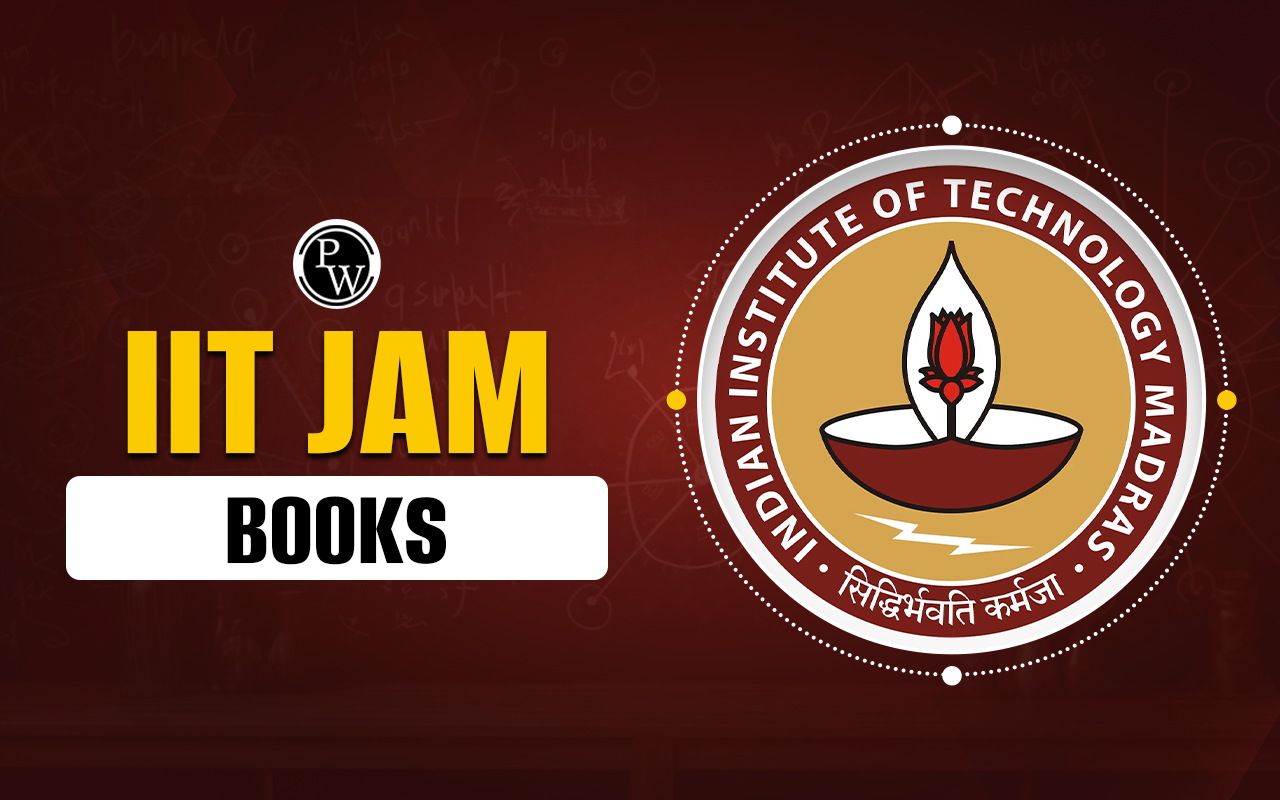
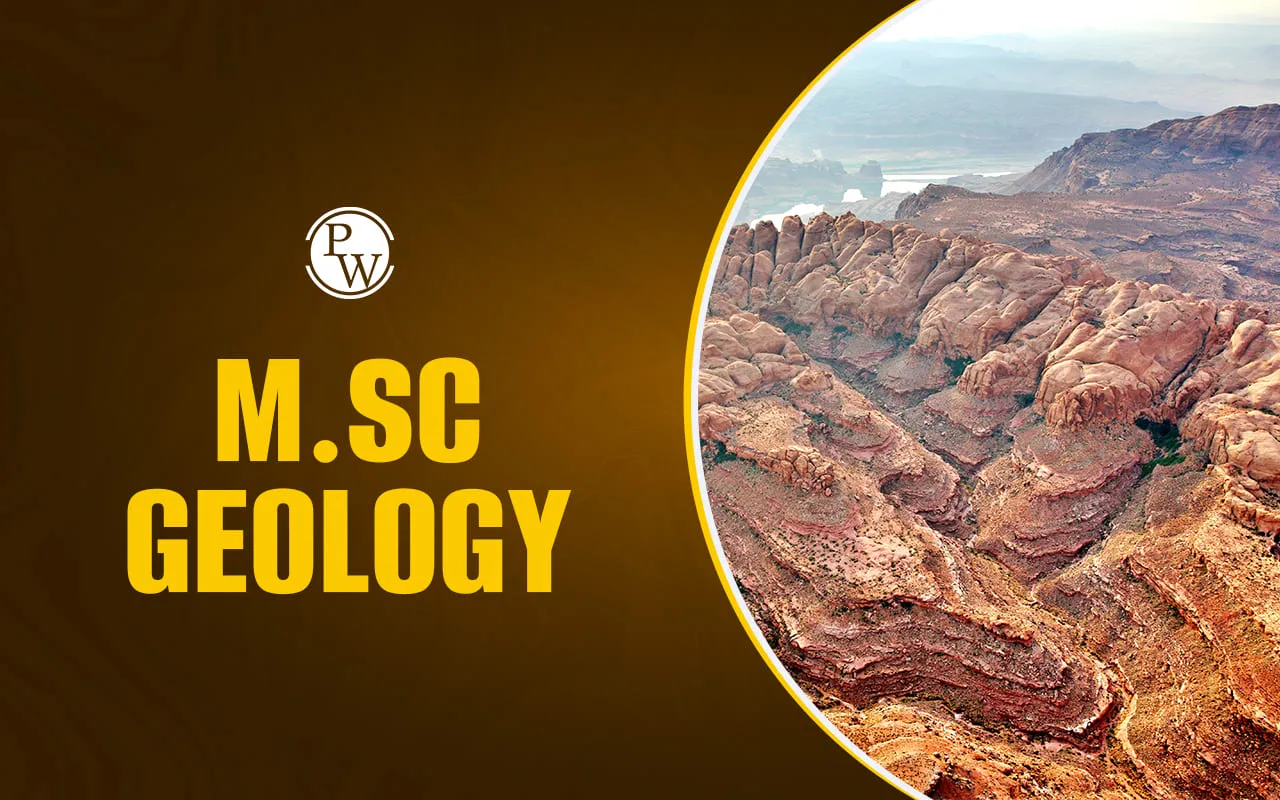
Pursuing an M.Sc in Geology opens avenues in industries like oil & gas, hydrogeology, mining, environmental consultancy, and geospatial technologies. It bridges undergraduate knowledge of geology with advanced applications and research, preparing aspirants for roles in academia, applied sciences, and industry. Here, candidates can find details about the M.Sc Geology full form, eligibility, syllabus, top colleges, jobs, and career scope.
M.Sc Geology Overview
The full form is Master of Science in Geology. This is a two-year postgraduate programme divided into four semesters. The master’s course in Geology focuses on mineralogy, petrology, palaeontology, structural geology, hydrogeology, and environmental geology. During the course, students are trained in both theoretical understanding and field-based geological practices.
Graduates of this PG program develop expertise in identifying rock structures, studying fossils, exploring natural resources, and understanding environmental changes. Skills gained through this program are highly sought after in industries like petroleum, mining, water resource management, and environmental consulting. Furthermore, candidates can learn about the course overview from here:
| M.Sc Geology Course Overview | |
|---|---|
| Particulars | Details |
| Course Name | Master of Science in Geology (M.Sc Geology) |
| Duration | 2 Years (4 Semesters) |
| Course Level | Postgraduate |
| Eligibility | B.Sc. in Geology/Earth Sciences or related discipline |
| Average Fees | ₹20,000 to ₹2,00,000 per year |
| Top Entrance Exams | CUET PG, IIT JAM, BHU PET, JNUEE |
| Average Salary (Starting) | ₹4 to ₹8 LPA |
| Career Roles | Geologist, Hydrogeologist, Mining Officer, Petroleum Geologist, Researcher, Lecturer |
Note: Course details may vary across universities. Candidates should confirm such details by visiting the official university portals.
M.Sc Geology Eligibility Criteria
Before applying for the enrolment procedure, candidates must confirm the eligibility norms of their chosen university. Generally, students with a bachelor’s degree in Geology or Earth Sciences are eligible for admission to this course. Some universities also accept candidates with related science backgrounds. It is advised that the candidates to learn about the eligibility parameters:
| M.Sc Geology Eligibility Criteria | |
|---|---|
| Criteria | Requirements |
| Educational Qualification | B.Sc. degree with Geology as a core subject (or allied Earth Science disciplines) |
| Minimum Marks | 50–60% in undergraduate degree (varies by institution) |
| Age Limit | No upper age limit |
| Additional Requirements | Some universities may require Mathematics/Physics at the UG level |
Note: Eligibility criteria related to admission vary by institution. It is preferred that candidates should always check university-specific guidelines.
M.Sc Geology Admission Process
There can be two ways for admission. Admission to the program is carried out through merit-based or entrance exam-based processes. Therefore, candidates must note that:
-
Merit-based admissions are based on marks obtained in the relevant B.Sc. degree.
-
Entrance-based admissions take place through exams like CUET PG, IIT JAM, or university-level tests.
Here is the common admission procedure:
| M.Sc Geology Admission Procedure | |
|---|---|
| Mode | Details |
| Merit-Based | Based on undergraduate percentage (cut-offs vary) |
| Entrance-Based | National/State/University-level exams (CUET PG, IIT JAM, etc.) |
| Counselling | Document verification and seat allotment |
| Final Selection | Based on merit list/entrance score + counselling |
Note: The above-mentioned process is common to almost all the universities in India. Candidates are recommended to check the actual admission process on their chosen university’s official online portal.
M.Sc Geology Entrance Exams 2025
Some of the most popular entrance exams in India for admission 2025 include:
| M.Sc Geology Entrance Exams 2025 List | |||
|---|---|---|---|
| Exam Name | Conducting Body | Mode | Subjects Covered |
| CUET PG | National Testing Agency (NTA) | Online (CBT) | UG-level Geology, Physics, Chemistry |
| IIT JAM (Geology & Earth Sciences) | IITs | Online (CBT) | Geology, Applied Geophysics, Mathematics |
| BHU PET | Banaras Hindu University | Online/Offline | UG Geology concepts |
| JNUEE | Jawaharlal Nehru University | Online (CBT) | Advanced Geology & Earth Sciences |
M.Sc Geology Syllabus
The syllabus blends classroom teaching, laboratory work, and field training. Generally, the M.Sc course curriculum is designed to build core competencies in geological sciences and applied research.
| M.Sc Geology Syllabus (Semester-wise) Details | |
|---|---|
| Semester | Subjects Covered |
| Semester 1 | Crystallography & Mineralogy, Structural Geology, Geomorphology, Practical in Petrology |
| Semester 2 | Igneous & Metamorphic Petrology, Sedimentology, Palaeontology, Environmental Geology |
| Semester 3 | Economic Geology, Hydrogeology, Engineering Geology, Remote Sensing and GIS |
| Semester 4 | Petroleum Geology, Ore Geology, Applied Geophysics, Project/Dissertation |
Note: Universities may update syllabus based on research trends and industry needs. Therefore, students who aspire for admission in this postgraduate course should confirm the syllabus from their chosen universities.
M.Sc Geology Core Subjects
The curriculum is designed to give students a strong foundation in both theoretical and practical aspects of Earth sciences. These core subjects cover areas such as mineral studies, rock formation, fossil records, groundwater exploration, and environmental impact. Mastering these topics prepares students for advanced research as well as professional roles in geology-related industries. Some of the important subjects include:
| M.Sc Geology Core Subjects Details | |
|---|---|
| Core Subjects | Focus Area |
| Mineralogy | Study of minerals, crystal structures, and optical properties |
| Structural Geology | Folding, faulting, and deformation processes |
| Paleontology | Fossils and the evolution of life |
| Petrology | Igneous, sedimentary, and metamorphic rock studies |
| Hydrogeology | Groundwater movement and resources |
| Environmental Geology | Human impact on Earth systems |
| Economic Geology | Mineral and ore exploration |
M.Sc Geology Specialisations
The course offers multiple options that allow students to focus on specific domains of Earth sciences. These specialisations provide targeted knowledge and skills that open up career opportunities in industry, research, and applied sciences. Choosing the right specialisation helps students align their studies with long-term career goals. Students can pursue specialisations depending on their career interests.
| M.Sc Geology Specialisations | |
|---|---|
| Specialisation | Scope |
| Petroleum Geology | Exploration & production of oil and natural gas |
| Hydrogeology | Water resources, groundwater studies |
| Environmental Geology | Environmental impact, sustainability studies |
| Economic Geology | Mineral exploration, mining |
| Engineering Geology | Geotechnical studies for construction projects |
| Remote Sensing & GIS | Geospatial technologies in geology |
Top M.Sc Geology Colleges in India
Candidates aspiring for the M.Sc programs can explore a range of reputed institutions across India. Below is a comprehensive list of top colleges and universities offering M.Sc Geology courses, along with their location and the entrance exams accepted.
| M.Sc Geology College List | ||
|---|---|---|
| College/University | Location | Exam Accepted |
| Indian Institute of Technology (IITs) | Multiple cities | IIT JAM |
| Banaras Hindu University (BHU) | Varanasi | BHU PET / CUET PG |
| Jawaharlal Nehru University (JNU) | New Delhi | JNUEE |
| Delhi University (DU) | New Delhi | CUET PG |
| Presidency University | Kolkata | University Exam |
| Osmania University | Hyderabad | OU Entrance / CUET PG |
| University of Madras | Chennai | CUET PG |
M.Sc Geology Fees in India
Candidates who want to pursue the course can take admission to central universities, state universities, IITs, NITs, and private universities according to their convenience and budget. Here is the estimated fees in India:
| M.Sc Geology Fees Details | |
|---|---|
| Type of Institution | Expected Average Fee Range (per year) |
| Central/State Universities | ₹20,000 – ₹70,000 |
| IITs/NITs | ₹80,000 – ₹1,50,000 |
| Private Universities | ₹1,50,000 – ₹2,00,000 |
M.Sc Geology Books
Some of the widely recommended books for students pursuing or planning to pursue this course are:
| M.Sc Geology books | |
|---|---|
| Subject | Recommended Books |
| Mineralogy | Introduction to Mineralogy – William D. Nesse |
| Structural Geology | Structural Geology – Haakon Fossen |
| Paleontology | Invertebrate Palaeontology – E.N.K. Clarkson |
| Petrology | Igneous and Metamorphic Petrology – Myron G. Best |
| Hydrogeology | Applied Hydrogeology – C.W. Fetter |
| Environmental Geology | Environmental Geology – Carla Montgomery |
| Economic Geology | Ore Geology and Industrial Minerals – Anthony M. Evans |
Jobs & Career Scope After M.Sc Geology
Graduates can pursue careers in government, private industries, research organisations, and academia. Here are some of the most popular career prospects after pursuing this course:
| Jobs & Career Scope After M.Sc Geology | |
|---|---|
| Career Role for M.Sc Geology Jobs | Average Salary (per annum) |
| Geologist (Mining/Oil) | ₹6 – ₹10 LPA |
| Hydrogeologist | ₹5 – ₹9 LPA |
| Petroleum Geologist | ₹8 – ₹15 LPA |
| Research Scientist | ₹6 – ₹12 LPA |
| Environmental Consultant | ₹4 – ₹8 LPA |
| Lecturer/Professor | ₹5 – ₹9 LPA |
M.Sc Geology Future Scope
The scope after completing an M.Sc in Geology is vast and rewarding, offering opportunities in both academic and professional fields. Graduates can build careers in research, industry, and government organizations, while also exploring higher studies and international roles. Candidates who want to explore the future scope after completing the course can read here:
-
Higher Studies: Pursue a Ph.D. in Geology, Earth Sciences, or Applied Geophysics.
-
Research Careers: ISRO, ONGC, GSI, DRDO, CSIR labs.
-
Industrial Roles: Oil & gas, mining, environmental consulting, water resource management.
-
International Opportunities: Geological surveys, environmental agencies, and universities abroad.
M.Sc. Geology FAQs
What is the eligibility for admission to the MSc in Geology?
Which exams are required for admission to the MSc in Geology?
What are the career options after an MSc in Geology?
What is the average salary after an MSc in Geology?

